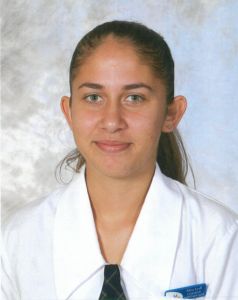 Name: Eliza Lyall
Name: Eliza Lyall
Community/State: Almaden, Queensland
School: Mount St Bernard College
Age/Grade: 17 Years, Year 12
Overcoming the odds – how can we push through barriers to achieve gender equality?
The idea that gender inequity has the potential to derail my career goals and negatively affect my life appals me. I know it is a significant barrier especially in my chosen career pathway, Engineering, a male-dominated field. The drop-out rate for female undergraduates is alarming. Women comprise only 9.5% of Australian engineers (Engineers Australia). Similarly, the attrition rate of women in sport reflects a gender gap. A keen sportsperson, I’ve represented Cairns and the Peninsula region in rugby league. And this is where I personally see gender inequity at work.
The sexist and misogynistic treatment of women in sport is systemic and belittling. Society presumes that women athletes should be paid less, will draw smaller crowds, play on sub-standard fields, struggle to find sponsorship and be the curtain raiser. Our skill and dedication are deemed inferior to men’s. By our very biology, we are asked to choose between motherhood and careers in order to pursue the sport we love.
Misogyny tarnishes our game. The family violence and anti-social behaviour many male football players practise off the field, with impunity, sends an intimidating message to women; that football is a male preserve, inhabited by violent men. Media coverage contributes to male dominance in sport. Women feature in only 7% of sports programming in Australia (Chalkley-Rhoden). And the focus is upon women’s bodies, the site of a sexualised objectifying male gaze. The furore surrounding the image of AFL player, Tayla Morris highlights this (Foxsports).
The change will come from women’s persistence. Women athletes have broken through immeasurable barriers and this momentum needs to continue. Men must take greater responsibility. Clubs and officials should enforce non-discriminatory policies that are gender neutral. Spectators should support women athletes, attend games, demand sport’s corporate executives take a lead in creating a harassment-free, level ‘playing field’ that acknowledges women’s right to compete and be reimbursed appropriately. At a grassroots level, barriers to female participation should be scrutinised. The Sex Discrimination Act 1984 (Cth) should apply to sport as much as the workplace and public sector, and penalties for gender discrimination in sport as in all areas of public and private life – be substantial. For equality we should stop calling it ‘women’s sport’. There is just one category, sport.
I tackle these barriers with my fitness, skill, hard work and courage. I support other women and acknowledge the athletes upon whose shoulders I stand. But our young players should not have to fight this battle.
References
Chalkley-Rhoden, S. (2015). Decline of Women’s sports coverage in Australia. Retrieved from ABCNews.
Foxsports. (2019). AFLW 2019: Footy community supports Tayla Harris. Retrieved from Foxsports.com
Nielson, C. (n.d.) Diversity in engineering: 12% is not enough. Retrieved from engineersaustralia.org.au
